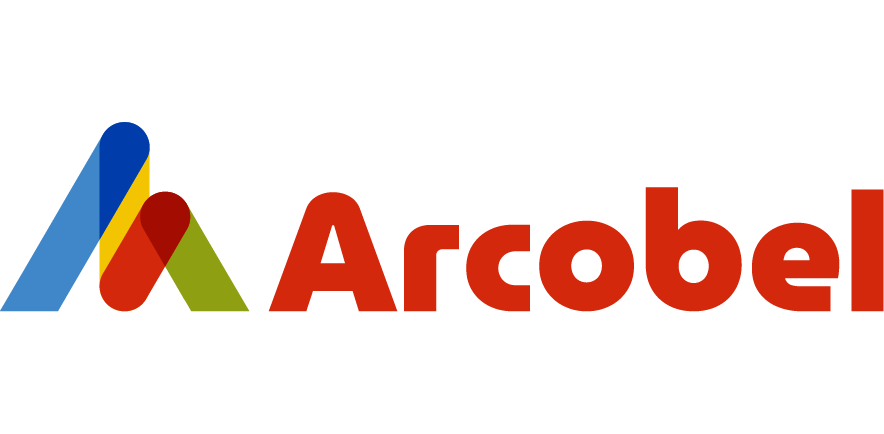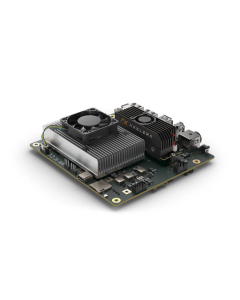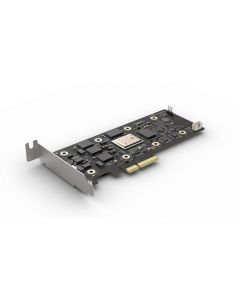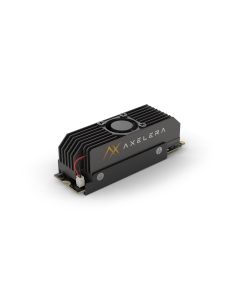

AI Systems and Industrial Applications in 2025
As 2025 is already half over, it's time to take a closer look at the reality of AI in the industrial sector. Developments in artificial intelligence (AI) are certainly not standing still and are a reality, even in technical industries. AI plays a key role in optimizing processes, increasing reliability, and reducing costs.
AI as an Accelerator of Industrial Innovation
AI is already being applied across various industries. In sectors such as machinery manufacturing, transportation, medical technology, and defense, we see that embedded AI solutions can add significant value. For example, industrial systems are being used to analyze real-time data to predict failures, or autonomous systems that make decisions independently based on thousands of variables.
At Arcobel, we notice that the demand for robust, reliable, and scalable hardware is growing. AI solutions have specific requirements for computational power, cooling, and connectivity. Our embedded computers and IoT gateways are designed exactly for this: fanless, energy-efficient, and built for continuous operation in demanding environments.
The Rise of Vertical AI Agents and Industry-Specific Solutions
Where AI was previously used mostly in a generic way, in 2025 we see a clear shift towards specialized AI solutions, with vertical AI agents playing a key role. Vertical AI agents are artificial intelligence systems that are specifically designed for one sector or task area. Rather than general knowledge or universal AI systems, they combine domain-specific expertise with AI algorithms to provide targeted solutions. An example of this is an AI agent trained specifically for maintenance patterns in railway systems or industrial automation.
This approach makes AI not only more effective but also more reliable and better suited for demanding industrial environments. However, these applications require dedicated embedded systems that are both intelligent and robust. The hardware must be perfectly tuned to the workload and the conditions in which the system operates. Arcobel supports customers in selecting and integrating this type of specialized AI hardware.
AI-Driven Robotics and Generative AI
AI-driven robotics is playing an increasingly important role in assembly, quality control, and logistics. With embedded vision and real-time processing, robots can adapt quickly to changing production conditions. In combination with machine learning, flexible systems are created that continuously improve based on new data.
Additionally, generative AI is gaining ground in the industrial sector. Rather than just analyzing data, this technology can also generate designs, simulate alternatives, or propose optimizations. In R&D processes or technical engineering, this offers enormous benefits, provided it's supported by powerful embedded systems that can run or control the models locally.
AI as a Tool for Employees
A common fear is that AI will completely replace employees. An important insight for industrial companies is that AI does not replace people but can enhance them. Employees who learn to collaborate with AI—such as through augmented diagnostics, digital assistants, or interactive dashboards—can make faster and better-informed decisions.
AI reduces cognitive load and automates repetitive tasks, allowing technical professionals to focus on other valuable activities in which they are specialized. At Arcobel, we see an increasing demand for systems that make AI insights accessible and usable for operators and engineers in the field.
Practical Applications in 2025
• Predictive Maintenance: AI detects abnormal patterns in vibrations or temperature. Maintenance is performed before failure occurs.
• Smart Transportation Systems: Real-time route optimization based on AI and sensor data increases efficiency and safety.
• Medical Technology: Embedded AI processes image data locally, speeds up diagnoses, and improves treatment planning.
• Manufacturing Automation: AI-driven robots perform visual inspections and improve themselves through machine learning.
• Generative Optimization: AI generates alternative designs based on specifications and system requirements—directly applicable to embedded hardware.
Ready for AI in Practice?
The deployment of AI in industrial applications requires more than just smart software. Without the right embedded hardware, AI solutions simply cannot be implemented on the shop floor. Arcobel helps with the selection, assembly, and integration of systems that are ready for today's and tomorrow's industrial AI challenges.
Whether it's edge computing, embedded vision, or generative algorithms, Arcobel provides the building blocks for reliable, long-lasting AI solutions in demanding sectors.



